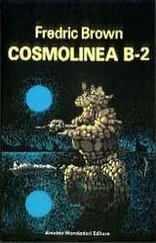Эллен Глазгоу - Barren Ground
Здесь есть возможность читать онлайн «Эллен Глазгоу - Barren Ground» весь текст электронной книги совершенно бесплатно (целиком полную версию без сокращений). В некоторых случаях можно слушать аудио, скачать через торрент в формате fb2 и присутствует краткое содержание. Жанр: Классическая проза, на английском языке. Описание произведения, (предисловие) а так же отзывы посетителей доступны на портале библиотеки ЛибКат.
- Название:Barren Ground
- Автор:
- Жанр:
- Год:неизвестен
- ISBN:нет данных
- Рейтинг книги:3 / 5. Голосов: 1
-
Избранное:Добавить в избранное
- Отзывы:
-
Ваша оценка:
- 60
- 1
- 2
- 3
- 4
- 5
Barren Ground: краткое содержание, описание и аннотация
Предлагаем к чтению аннотацию, описание, краткое содержание или предисловие (зависит от того, что написал сам автор книги «Barren Ground»). Если вы не нашли необходимую информацию о книге — напишите в комментариях, мы постараемся отыскать её.
Barren Ground — читать онлайн бесплатно полную книгу (весь текст) целиком
Ниже представлен текст книги, разбитый по страницам. Система сохранения места последней прочитанной страницы, позволяет с удобством читать онлайн бесплатно книгу «Barren Ground», без необходимости каждый раз заново искать на чём Вы остановились. Поставьте закладку, и сможете в любой момент перейти на страницу, на которой закончили чтение.
Интервал:
Закладка:
"When all is said, we are as contented as we could expect to be," she remarked, when he rose to go upstairs. "If you don't marry, we'll have a pleasant old age by the fireside."
He laughed shortly, for he was in one of his gentler moods. There was a charm, she thought, in his leng thin features, his sallow skin with bluish shadows about the mouth, his squinting eyes, and his straight black hair which fell in stringy locks over his forehead.
"You may marry again yourself," he said abruptly. "You aren't as handsome as you used to be, but you're still better-looking than anybody about here."
She shook her head obstinately. "With white hair and wrinkles!"
"Well, there's more than white hair and wrinkles. I don't know what it is, but it's there," he answered, as he turned away and went out of the room.
In the morning she awoke with a feeling of despondency. Dread had come over her while she slept, and she felt it dragging at her memory after she had opened her eyes. Why had she yielded to that erratic impulse the evening before? Why had she allowed those two men to impose on her? "If is because I am a woman," she thought. "If I were a man, they would never have dared." Yes, John Abner was right (here was another instance of how right he so often was) and the county authorities had taken advantage of her weakness. "Well, I've let myself in for it now, and I'll have to go through with it," she said aloud, as she got out of bed and began dressing.
At breakfast, while she tried to eat and could not because of the lump in her throat, she reminded herself of her mother on the day of her journey to the Court-House. "All I need is a crape veil and a handkerchief scented with camphor," she said, with a laugh.
"What are you talking about, Dorinda?" John Abner asked, with a frown.
"I was thinking of my mother. Poor Ma! She'd be living now if she hadn't worried so."
"Well, she'd be nearly a hundred, I reckon. And don't you begin worrying. Are you out of temper because you let those men put something over on you?"
"I don't know. It seems different this morning. I can't see why I did it."
"I heard the men talking about it in the barn. Somebody, the sheriff, I reckon, had told Martin Flower, and he said you'd bitten off more than you could chew."
Dorinda flushed angrily. "When I want Martin Flower's interference, I'll ask for it."
Already a message had gone to Mirandy, and the old negress was waiting outside for directions when breakfast was over. The floor and the woodwork of the spare room must be scrubbed; the bed thoroughly aired before it was made up; a fire kindled in the big fireplace; and the red-bordered towels, which her mother had reserved for the visiting elder, must be hung on the towel-rack. Last of all, Mirandy must remember to keep a kettle boiling day and night on the brass footman.
"I wonder why I am doing all this?" Dorinda asked herself. Was it, as she believed, from impersonal compassion? Or was it because her first lover, merely because he had been the first, was impressed eternally on the unconscious cells of her being? "No, I'm not doing it for Jason," she answered. "Even if I had never loved him, I couldn't let the man who had owned Five Oaks die in the poorhouse."
"Before we bring him here," John Abner said, "you'd better warn Aunt Mirandy that consumption is catching." He shook his head with a sardonic smile. "I'm afraid he's going to be a nuisance; but I believe you would have done the same thing if it had been smallpox."
She looked at him with inscrutable eyes. "I was never afraid of taking things."
"But you don't even like Jason Greylock."
"Like him? Who could? What has that to do with the poorhouse?"
A look of rare tenderness, for he was not often tender, came into John Abner's eyes while he squinted at her over the table. "Well, you're a big woman, Dorinda, even if you're trying at times. There's an extra dimension in you somewhere."
Though praise from John Abner was one of the things that pleased her most, she was incapable, she knew, of draining the sweetness of the moment before it escaped her. When happiness came to her she had always the feeling that she was too dull or too slow to realize it completely until it was, over, when she responded to the memory as she had never responded to the actual occurrence.
"You're very good to me, John Abner," she answered. Her words were insufficient, but the habit of reticence was, as usual, too strong for her.
For hours she went about her work with the thoroughness that she exacted of herself on days of mental disturbance. Not until the car was waiting at the door, and Fluvanna was hastening out with robes and pillows, did Dorinda turn aside from her ordinary activities, and go into the room she had selected for Jason. Yes, everything was in order. The floor and walls were clean; the windows had been closed after an airing; and the fire burned brightly on the sunken stones in the fireplace. Even the big iron kettle steamed away on the footman. There was soap in the soap-dish on the washstand; an abundance of soft warm blankets covered the bed; on the candle-stand stood a blue thermos bottle, and her mother's Bible lay beside it, with the purple book-marker she had embroidered marking a favourite text. "It ought to seem pleasant," she thought, "after the poorhouse."
Outside, she found John Abner at the wheel of the car and Fluvanna arranging the pillows on the back seat.
"Would you like to drive, Dorinda?"
"No, but I'll sit in front with you. When we come back, one of us will have to sit with him, and I'd rather it would be you."
Chapter 9
They talked little on the long drive. John Abner was intent on the wheel, and Dorinda held her cape closely about her, and gazed straight ahead at the twisted road and the hazy brightness of the October landscape. A veil of glittering dust drifted up from the meadows of life-everlasting; in the underbrush by the fences, sumach and sassafras made splashes of crimson and wine-colour; farther away, the changing woods were tossed in broken masses against the cloudless arch of the sky.
As they approached the Court-House, the country was less thinly settled, and throngs of barefooted children ran beside the car and offered bunches of prince's feather and cockscomb. In some of the fields men were ploughing, and among them Dorinda observed the phlegmatic faces of Swedes or Germans. As the car sped by, they stopped in their ploughing or cutting, and turned to stare curiously like slow-witted animals. Over all was the blue haze of October and the drifting silver pollen of life-everlasting.
At Doctor Stout's, a new green and white cottage near the road, which looked as trivial as a butterfly on the edge of the autumnal solitude, they were told that the doctor had already gone to the poorhouse.
"He was that upset he couldn't sleep last night," said Mrs. Stout, a pretty, plump, deep-bosomed woman, in a pink and white gingham dress and a starched apron. "It seemed to prey on him to think of Doctor Greylock, who used to have the best practice around here, dying up yonder in the poorhouse. He was so promising, too, they say, when he came back, and his people owned that big place over near Pedlar's Mill. Drink was his ruin, I reckon, and that made it so hard, for everybody was afraid to take in a man that was out of his head. I couldn't have had him here on account of the children and measles just broken out yesterday. But there ought to be some way of caring for sick and crazy people without sending them to the poorhouse. And now with all the poorhouses going, there soon won't be any place for them but the gaol." She was a voluble person, but at last the flow of words stopped, and they drove on between dusty borders of sassafras.
"Is it true that Doctor Stout was born in a poorhouse?" Dorinda asked presently.
Читать дальшеИнтервал:
Закладка:
Похожие книги на «Barren Ground»
Представляем Вашему вниманию похожие книги на «Barren Ground» списком для выбора. Мы отобрали схожую по названию и смыслу литературу в надежде предоставить читателям больше вариантов отыскать новые, интересные, ещё непрочитанные произведения.
Обсуждение, отзывы о книге «Barren Ground» и просто собственные мнения читателей. Оставьте ваши комментарии, напишите, что Вы думаете о произведении, его смысле или главных героях. Укажите что конкретно понравилось, а что нет, и почему Вы так считаете.










![Эллен Дедженерес - Кроме шуток [Как полюбить себя, продать дуршлаг дорого, прокачать мозг с помощью телешоу и другие истории от Эллен Дедженерес] [litres]](/books/384873/ellen-dedzheneres-krome-shutok-kak-polyubit-sebya-p-thumb.webp)

